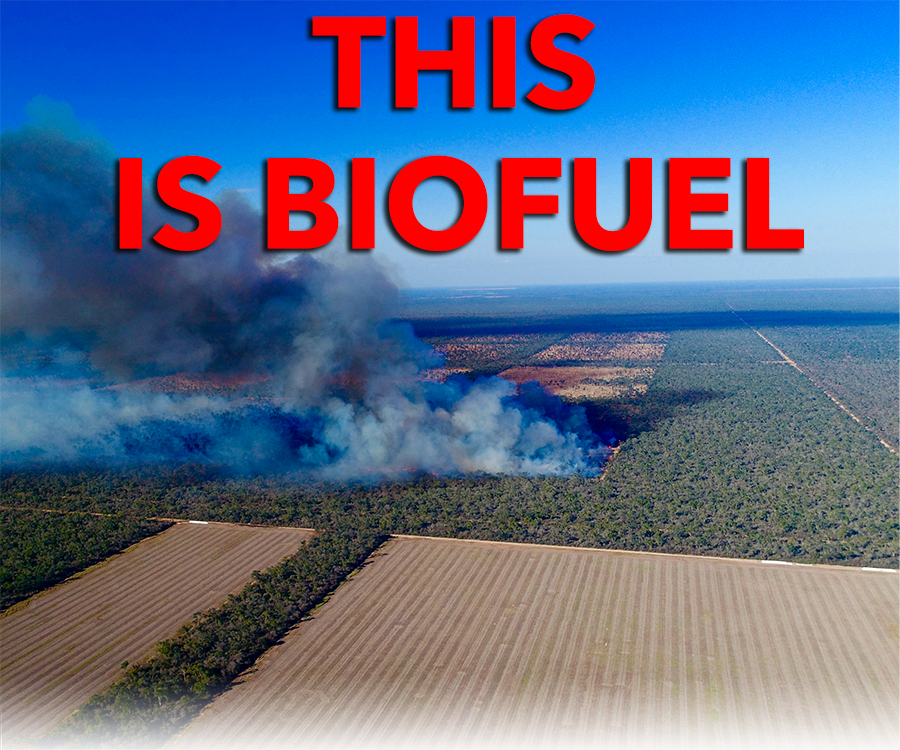We tried. It didn’t work.
Let’s Put the Ethanol Mandate Behind Us.
There is a mandate in place that requires your gasoline to contain 10% ethanol. The intent was to reduce carbon emissions, but in reality, ethanol production is more harmful to our environment and economy than lawmakers realized.
Rethink Ethanol is a new initiative to address our nation’s failed mandated and subsidized corn-based ethanol policies.
We will be engaging voters, thought leaders, industry experts, and policymakers in a frank conversation on the effects of corn-based ethanol.

This is the face of ethanol mandates.
%
Estimated increase in cost of corn between 2006 and 2011 attributed to the RFS mandate. The RFS creates a guaranteed demand for ethanol that does not reflect market realities.
Source: Our Energy Policy – The Effect of the US Ethanol Mandate on Corn Prices
The number of years it took us to remedy our lands from edge tillage. Edge tillage is planting right up to the edge of the field thereby removing protective bordering lands and increasing soil erosion, chemical runoff and other problems. It took us 40 years to end edge tillage in this country, and overnight ethanol brought it back with a vengeance.
Source: Forbes Magazine: “It’s Final — Corn Ethanol Is Of No Use”
Recent land conversions to grow more corn and soybeans released 131 million tons of carbon into the air between 2008 and 2012, as much as 34 coal-fired power plants.
Source: April 2015 study by researchers at the University of Wisconsin.
The EPA can improve the quality of our air, water, and land by accepting the reality that the national policy to promote corn-based ethanol is a failure. This policy, initially well intended, is devastating to our environment and to our wildlife. It’s distorting food quality and prices. And, our government is wasting taxpayers’ money to further the damage caused by corn-based ethanol. It is time to stop and rethink ethanol.
In 2007, Congress passed the Renewable Fuel Standard with good intentions: reducing dependence on fossil fuels, accelerating development of sustainable biofuels, and reducing greenhouse gas emissions.
Unfortunately, nine years later, there have been severe unintended consequences—large-scale loss of wildlife habitat (especially native grasslands) and degradation of water quality—and wildlife has borne the brunt of these impacts.
Ethanol production is damaging to land, water, air and wildlife.
lessons from a global pandemic, by co-founder jerry jung
Co-founder’s note: “I authored this timely essay. It was published by the Washington Times. Although it does not address the absurdity of biofuel subsidies, it explains another reason that corn production in excess of our needs is so detrimental to biodiversity.”
– Jerry Jung
What a Pandemic Can Teach Us about the Demise of Insect Biodiversity
It has been over a century since so many people have been informed about the spread of a contagious disease. Concepts such as herd immunity, social distancing and how airborne pathogens are spread have become the centerpiece of numerous blogs, articles and conversations.
Perhaps a better-informed public can now appreciate what is happening to the global ecosystem. As numerous scientific and popular articles attest, insect populations are in steep decline. I’ve experienced this firsthand on my hobby farm in central Michigan when monarch butterflies stopped arriving on their multi-generation migration from Mexico. Insect populations, especially migrating insect populations that comprise larger flying insects, have been decimated in the past 10 to 20 years.

RETHINK ETHANOL
Rethink Ethanol is a non-profit group dedicated to increasing awareness and initiating changes in ethanol usage in order to help the environment and people.
© 2025 Rethink Ethanol | Privacy Policy
